City of Champaign Human Relations Commission met October 2.
Here is the minutes provided by the Commission:
I. Call to Order
II. Roll Call
a. Present: Commissioner Bressner, Commissioner Creighton Comer, Commissioner Elmore, Commissioner Felty, Commissioner Greene, Commissioner Turner, Chairperson Young, Commissioner Willie Comer (joined at 5:38)
b. Absent: Commissioner Midden
III. Approval of Meeting Minutes
a. August 7, 2017 Regular Meeting
i. Changes or Amendments: None
ii. Motion to approve: Turner
iii. Second: Elmore
iv. Minutes Approved.
IV. Staff Reports - Rachel Joy, Community Relations Manager/Compliance Officer
a. The most important report is that the Community Relations Office has hired a new Administrative Assistant, Ashley Stickels.
b. Community Relations Office Monthly Activity Reports
i. Two new cases have been opened since August 7. Two additional cases remain open. Two cases have been referred to the State. One case was not handled because it was outside the time limit to file. Currently there is one open case with the Police Department.
c. Hiring Report
i. In August, there were two white males and two white females hired. In September, there were two white females hired.
V. Correspondence/Announcements
a. Commissioner Bressner made an announcement about the disAbility Music & Art Festival on October 21 from noon to 3 p.m. at Lincoln Square in Urbana. The Disability Expo will be on April 7. The event will feature entertainment, awards for supporters, along with other activities.
b. The Expungement Summit will also take place on October 21.
c. Amnesty Week is also coming up shortly. Dates forthcoming.
VI. Audience Participation
a. None.
VII. Speaker: Kerri Wiman, City of Champaign Neighborhood Services Department
a. Affirmatively Furthering Fair Housing
i. Ms. Wiman is from the Neighborhood Services Department, which receives Federal Funding for this project. She is thankful for Ms. Joy’s assistance in this project as well. Her notes as they were prepared appear below.
ii. Affirmatively Furthering Fair Housing. Under the federal Fair Housing Act, communities receiving federal funds were previously required to affirmatively further fair housing. The Fair Housing Act requires each community receiving funding for housing efforts to assume the responsibility of fair housing planning by conducting an analysis to:
1. identify impediments to fair housing choice within its jurisdiction
2. take appropriate actions to overcome the effects of any impediments identified through that analysis
3. maintain records reflecting the analysis and actions in this regard
iii. This document served as a companion to the City’s Five-Year Consolidated Plan, which outlines the City’s affordable housing and community development needs and strategies, and describes federally funded actions to be undertaken in carrying out plan strategies.
iv. The purpose of these actions is to identify and eliminate actions which lead to discrimination on the basis of race, color, religion, sex, age, disability, familial status or national origin, and to expand housing options for all residents of Champaign.
v. Assessment of Fair Housing. Future submissions will require a different format: HUD has proposed to replace the Analysis of Impediments to Fair Housing report system with an “Assessment of Fair Housing” (AFH) system. The most relevant change proposed is that program participants would have to submit an AFH in advance of the Consolidated Plan and HUD strongly encourages housing authorities and local jurisdictions to look regionally at fair housing issues and solutions. Previously, communities receiving Community Development Block Grant (CDBG) and/or HOME Investment Partnership Program (HOME) funds were required to consult with their local housing authority, but the new rule requires a collaborative effort to assess and address fair housing issues. Another significant change is a local assessment tool for the assessment that will be required for participants.
vi. Regional Collaboration Encouraged by HUD. HUD encourages collaboration between HUD-funded program participants, such as housing authorities and jurisdictions receiving CDBG and funds, to conduct and submit a regional AFH. This is based on the theory that fair housing issues are not limited to just one jurisdiction and therefore a regional analysis is expected, even if the report is submitted by a singular agency. With this goal, Champaign hosted a meeting with local communities and housing authorities in the region. The meeting was requested by HUD and led by Ray Willis, Director of the HUD-Chicago Field Office and his staff. The purpose of the meeting was to gauge interest in a regional approach as the new rule would become effective with the next Consolidated Plan. For the City of Champaign, this is 2019 for the report to inform the Consolidated Plan of 2020- 2024.
vii. Current regional partners include: City of Champaign and the City of Urbana, Village of Rantoul, City of Danville, Champaign County (through RPC) and the following Housing Authorities: Champaign County, Piatt County, Ford County, Vermilion County and the Housing Authority of the City of Danville. As the HOME lead agency, Urbana is also leading the Assessment of Fair Housing for this regional collaboration.
viii. Requirements for Consolidated Plan Program Participants. The City is required to follow the policies and procedures in the Citizen Participation Plan that is included as a part of the Consolidated Plan. During this process, the City will need to update this document to reflect the requirements of the Affirmatively Furthering Fair Housing rule. These are found in 24 CFR Part 91. These outline the process of developing the new AFH, obtaining community feedback and addressing complaints. During 2017, staff will work with the Community Relations Office and the Urbana HOME Consortium to amend the existing Citizen Participation Plan and ensure these requirements are met. This should be completed by the end of 2017.
ix. Regional Collaboration Structure. HUD-Chicago asked the City of Urbana, as the lead entity for the Urbana HOME Consortium, to serve as the lead agency for the regional collaboration. Urbana agreed to fill this role and held the first meeting in February 2017. The group has executed an Intergovernmental Collaboration Agreement and both myself and Community Relations Manager Rachel Joy are representing the City of Champaign.
x. Next Steps. The group will finalize a workplan for the next two years in order to complete the AFH prior to the next Consolidated Plan. Some tasks include: in 2017/2018, Neighborhood Services will revise our Citizen Participation Plan to include the community input process for this report. Any feedback or suggestions from HRC would be helpful and can be shared either here tonight or with Ms. Rachel Joy, who is collaborating in this project with me.
xi. In 2018, the City of Champaign will analyze housing and demographic data for our community and consider any patterns, trends or barriers that are noted in other regional partner communities. This information will also be shared with our advisory boards and committees, including this Human Relations Commission and the Neighborhood Services Advisory Board. Comments or concerns regarding this information will help with our analysis and conclusions for the report. Any policy recommendations would also be brought, or suggested by, these two advisory boards and then recommended to the appropriate body, such as City Council or the Housing Authority of Champaign County for final decisions.
xii. Urbana is presently serving as lead agency on this regional group. An intergovernmental agreement has been signed to bind all members together.
xiii. The group will be working over the next two years to complete the plan for a 2019 submission.
xiv. The group will be updating the City’s community outreach plan, and is glad to accept suggestions from the HRC either tonight or over the coming weeks.
xv. Any policy recommendations for the submission will be brought to the Neighborhood Services Advisory Board and the HRC, and will be referred to Council and the Housing Authority as needed.
xvi. Questions?
1. Commissioner C. Comer asked: How will the data be collected and who will it be shared with?
a. A lot of the data will come from HUD, but will also come from Community Relations complaints and the Tenant Union. Additional data
2. Commissioner C. Comer asked: Will the documents be available online?
a. Yes. The data will be hosted on the City’s website, and will be shared throughout the community and with our partners. The coordination group host a meeting locally to present the compiled findings.
3. Commissioner Alissia asked: What would Citizen Participation look like?
a. The plan guides what information needs to put out, where, and for how long. In the event of a major amendment, we want to make sure that the information is provided up front. We want to have at least a handful of public hearings and traditional meetings, but also wants to come up with a number of creative ways to approach it.
4. Commissioner Felty asked: Are other communities in the county involved?
a. Rantoul is, but other communities are not, as they don’t receive Federal funding, so they are not required to do so.
5. Commissioner Felty asked: Are communities like Tolono and Mahomet allowed to join this if they are interested?
a. They could join if they were interested in doing so. Urbana is the point on this, and would need to reach out to them.
b. Per Commissioner Felty, the mayor of Tolono would be interested. Also, there is a group in Mahomet, “the Persisterhood,” who would be worth contacting.
6. Commissioner Felty asked: As for sources of information, consider asking the Fair Immigration group what they’re finding, along with the First Followers group. Also, the Black Chamber of Commerce for their findings and the NAACP for a report from one of their subcommittees. A great place to advertise meetings would be barbershops around town.
7. Commissioner Felty asked: The HRC requested a change in the restriction in the City of Champaign that bans anyone who was incarcerated within the past five years from living in HUD Housing. The HRC has taken it up previously, and Commissioner Felty urged staff to advance that for potential Council action.
8. Commissioner Felty asked: In collecting data, there is a difference between asking for self-reporting and sending in independent testing to see how local housing providers and mortgage lenders actually follow the rules and requirements. Is any testing being considered?
a. At this time, testing is not being recommended, as it takes significant resources. The data comes from a Federal agency.
b. The resource commitment isn’t as high as it might seem if interested community members were trained to complete the testing.
9. Commissioner Felty asked: There was mention of the four local counties and Danville, then mentioned Chicago. Is the City of Chicago in our region?
a. The Housing Authorities of the four counties, Danville, Champaign-Urbana, and Rantoul all report to the Chicago HUD Field Office. That is Chicago’s only involvement.
10. Commissioner Felty asked: Is there anything being planned along with this report to educate the public on the Fair Housing Act and their rights?
a. The City has done training in the past for tenants and landlords which was not well received. It was held on the same day as a first-time homebuyer fair that was very successful. That said, that is what this process looks for. If it finds an educational gap, the gap could be addresses.
b. Rather than waiting to find the gap, it’s easy to go to the audience and train volunteers who could share it.
11. Commissioner W. Comer commented: There are a lot of African American young men being released from prison and they have difficulty returning home if their family lives in Public Housing. This issue splits families and is detrimental to the African American Community. Commissioner Willie Comer would be willing to assist in any way to assist with this.
12. Commissioner Turner asked: What is the group’s current social media presence to engage people, allow for comments, and get people involved without having to come to events?
a. This is a great suggestion that could be well pursued. The City does have social media accounts and staff who could push out information. There are tools we could use to make it more of a conversation, either the City of Champaign or the regional partners. It would, of course, come down to resources.
b. A Public Hearing will probably still be held, as there are strict requirements of what those events look like and how they are coordinated. Other means of communication are certainly up for discussion.
13. Commissioner Felty commented: In California, doctors are able to essentially prescribe balanced food and safe housing as a way to assist people without the resources or knowledge of local resources.
VIII. Committee Reports
a. 2017 Action Plan
i. Commissioner Willie Comer – Marketing Materials
1. Nothing new, but he will be meeting with a producer to get the HRC a song track written. Commissioner Greene will be assisting with lyrics. Commissioner W. Comer has pulled information from the HRC brochure, and is excited to see how it fits together as a song.
b. 2017 IWAC – Commissioner Kenton Elmore (Back-up Commissioner Barbara Bressner)
i. The event was a great success. Last week, the Welcome Award Ceremony was held. The event has been going on for a few years, and now has support from a broader audience. The six award recipients had amazing stories and an excellent turnout. Mayor Feinen and Council Member Beck attended. With the change in the CUIHA event, there was some upfront concern, but it was well received.
ii. Staff commented that Commissioner Elmore was an excellent representative of the HRC, and did an amazing job.
c. 2018 MLK – Commissioner Amy Felty (Back-up Commissioner Demario Turner)
i. We are moving right along, have a venue – Vineyard Church. The celebration will center around youth in many ways. The group is working on an additional keynote speaker as well.
ii. Nominations will be put out online and will be pushed to the Commission as well.
iii. We are on track for an excellent celebration in January.
IX. Old Business
a. None.
X. New Business
a. Commissioner Suggestions for Speakers
i. Suggestions from Commissioners:
1. Emergency preparedness with METCAD 911
2. Regional Planning Commission
3. Lynn Canfield with Mental Health Board
ii. What do we look for in organizations and individuals coming in?
1. The best idea would be to have interested individuals call the Community Relations Office for an “initial screening”
2. Having the groups fit the HRC’s core mission.
3. Some concerns with groups has been how the group is organized.
a. For example, if there is an organization whose goal was to provide free legal services, but they are a business and have other revenue sources that are for-profit. It gets a bit uncertain.
b. In this case, Rachel can relay the parameters of their presentation.
iii. W. Comer commented: In a meeting a few weeks ago, it came up that no one knows that the HRC exists. These are adults, not students. There are a wide variety of people who don’t know who we are, what we do, or that there is a place that they can file a formal complaint.
1. In cases like this, word of mouth can be very helpful for the HRC and the Community Relations Office. You have to have those conversations and share the word.
2. Even Chairperson Young didn’t know about the HRC prior to serving here. It’s all about sharing the knowledge with the organizations we all work with and the people we know.
3. Maybe we invite in members of community groups so we can hear about them and they can hear about us.
4. There are also a number of opportunities for morning shows, PSAs, and other free media.
5. Consider going back to the people you know to find out how they get their information.
6. Commissioners can volunteer at events, such as the upcoming Expungement Fair. These public forums give great access to provide information.
a. The Expungement Fair will be held 8 a.m. to 5 p.m. on October 21 at Stone Creek Church.
b. Commissioner Turner mentioned Amnesty Week is coming up.
iv. If any additional ideas come up, please reach out to Rachel Joy.
XI. Audience Participation
a. None.
XII. Commissioners’ Comments
a. Commissioner Bressner: This is Disability Awareness Month and Disability Employment Month. The display case in the City Building atrium has been decorated to provide excellent information. Also, the Penguin Project just held their performances of Mulan, and it was great.
b. Commissioner Creighton Comer: No comments.
c. Commissioner Willie Comer: No comments.
d. Commissioner Elmore: There has been great progress on the Citizen Review Subcommittee, which is being appointed tomorrow at the City Council meeting. Commissioner Turner will be the HRC representative, and will represent the Commission well.
e. Commissioner Felty: Mahomet had an excellent showing of Racial Taboo with over 120 attendees. People were there from other local towns as well. Plans are in the works for additional showing.
f. Commissioner Greene: At Centennial High School, they have a Social Justice class and a committee, and are always looking for events and ways to get involved. Those groups could assist with events and sharing information.
g. Commissioner Turner: Revisiting Amnesty Week, it is October 2-6. They are accepting payments for outstanding fines and fees throughout the week. It gives a great chance to get these paid without additional fees.
h. Chairperson Young: Commissioner Willie Comer is being recognized by the local NAACP for his efforts in the community. Community Members are encouraged to come to the City Council meeting tomorrow to come and see the Citizen Review subcommittee as it is appointed.
XIII. Adjournment
a. Motion to Adjourn: Elmore
b. Second: Turner
c. Meeting adjourned at 6:29 p.m.
http://documents.ci.champaign.il.us/v/1KzYCKSelusmcDvEuOtzlt22o2FPZc5oa

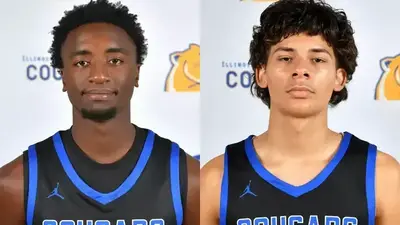
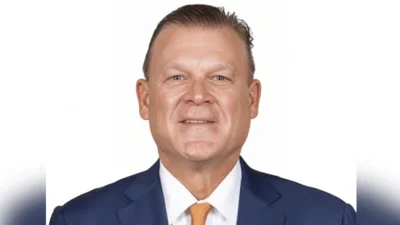
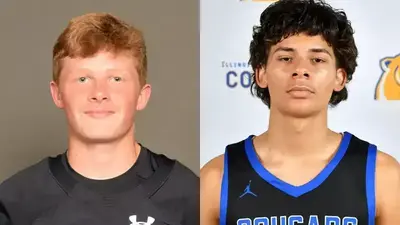
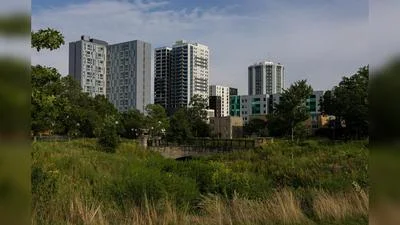
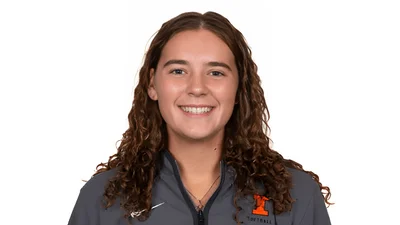
 Alerts Sign-up
Alerts Sign-up